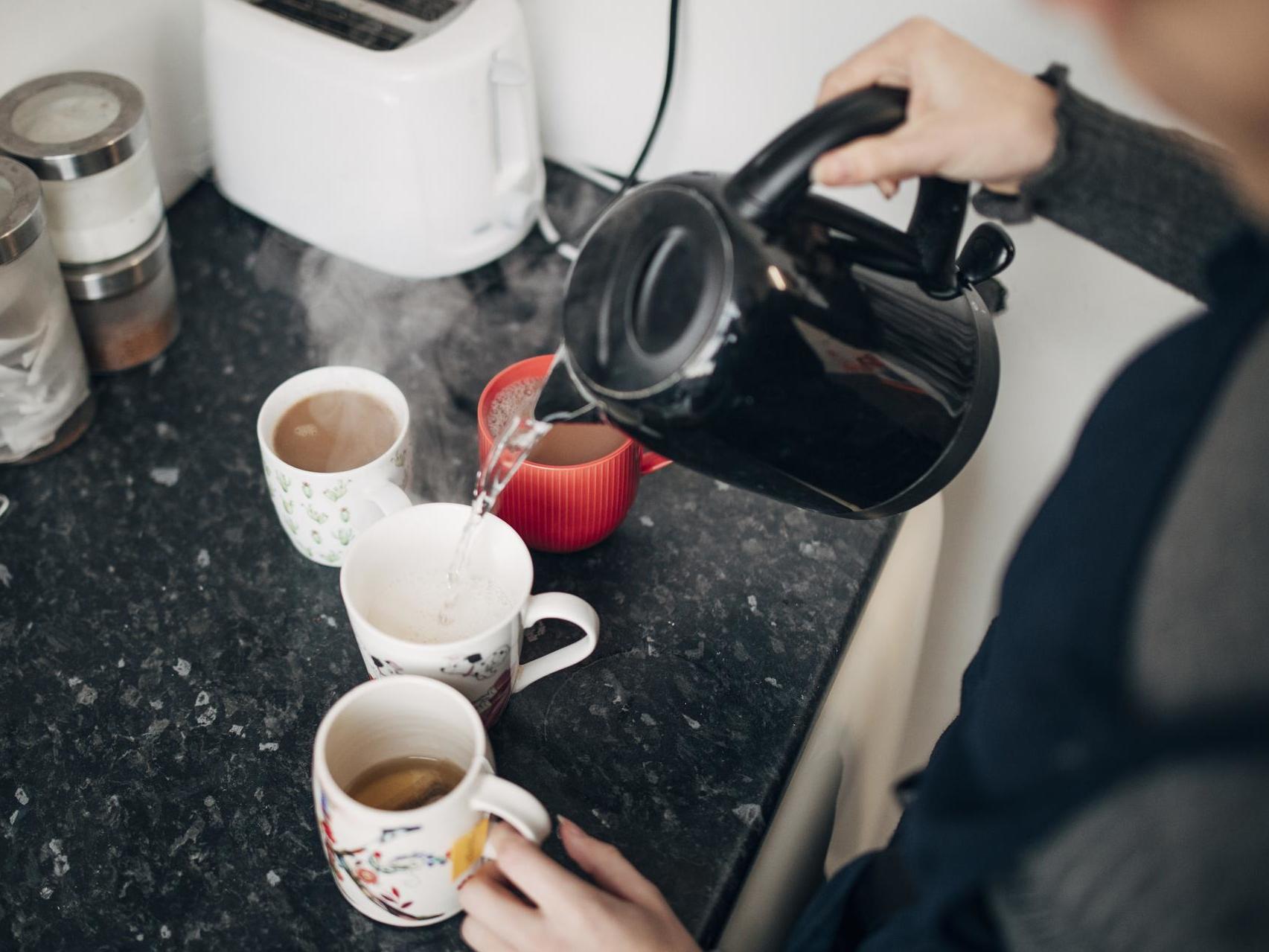Office workers fear loss of tea round and other traditions after coronavirus
Anxious employees may also wave goodbye to birthday cards

Office workers fear the coronavirus pandemic could spark the death of the traditional work tea round and birthday treats, according to a recent poll.
A poll asked 2,000 employees their views on the future of the workplace, with 43 per cent admitting they were anxious about returning.
More than half believed tea rounds would not survive the pandemic as one in four said they would not want a colleague making them a drink.
One-third said they planned to avoid hot-desking in the future, while 30 per cent said they would use their own mug and 27 per cent would bring in their own cutlery.
Others were planning to avoid preparing their lunch in the communal kitchen, stop sharing snacks, and no longer sign birthday cards which are passed around the office for colleagues.
The data was gathered in a poll commissioned by Umovis Lab. A spokesperson for company said: “The research shows just how conscious people are about returning to the workplace and adapting to the new normal.
“We have all adopted new hygiene customs and practises in recent times and now the nation needs to be prepared to return to work safely.
“Business leaders are going to need support and the resource in order to be responsible for their workforce and prepared for any future eventualities."
More than half of workers said they would wash their hands more often as part of their new workplace routine and 23 per cent were even planning to bring their own soap and hand sanitiser.
But more than two-thirds wanted their workplace to provide hand sanitiser for staff while 51 per cent wanted there to be at least 2m between desks.
Dr Luke Moore, infectious diseases physician, clinical microbiologist and independent consultant for Umovis Lab, said: “Most will have a first aid box at home to reactively treat injuries, but few will have proactive measures in place to try and limit the spread of infection.
“In normal daily life we’re going to be exposed to situations where germs can spread between us and in the world of germ transmission, the best possible answer is to try and stop yourself from getting an infection in the first place.
“Preparedness and protection are essential when it comes to trying to limit infection and if we take the right measures, infection is something we can work together to minimise.
“Using equipment which mitigates the spread of the virus is a key part of that equation along with how we adjust our behaviour.”
SWNS
Join our commenting forum
Join thought-provoking conversations, follow other Independent readers and see their replies
Comments
Bookmark popover
Removed from bookmarks